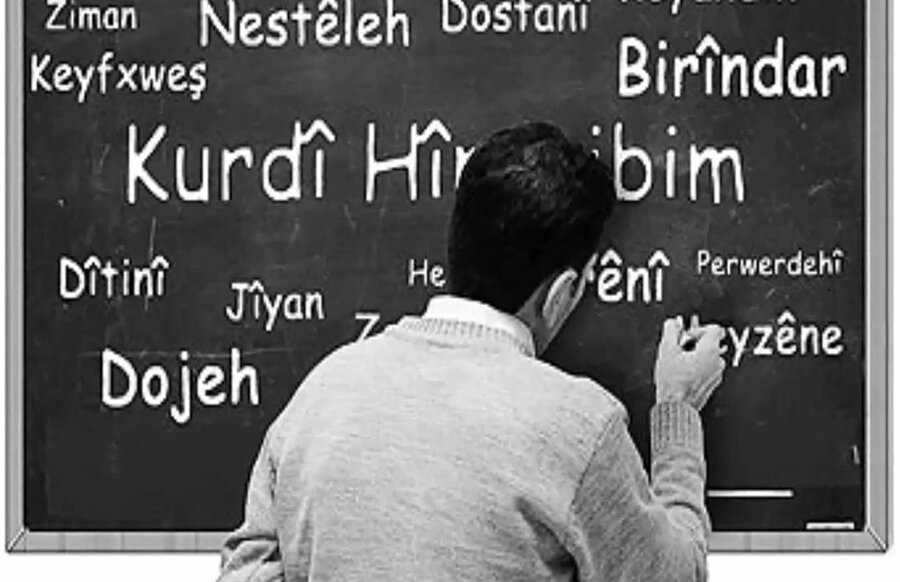Farat Demiroglu
Sometimes I felt something was missing, but I didn't know what it was. I couldn’t express things, sometimes I said I didn’t feel things or they were always lacking in me. I was waiting to find myself. There was nothing to give me a soul. I was looking for a way. I was getting lost in the dark at university. Nothing was good, it was still dark, I was dizzy and couldn’t straighten my back. I went back and forth between abstract thoughts and beliefs. I was looking for freedom among them, I needed a way! Every time I visited a place, something was missing. I understood many things in those ideologies and beliefs, but it was still lacking.
I found a Kurmanji book and wanted to understand what it was about, but I couldn't understand the subject. There were many familiar words in it and it was full of ones I knew, there were sentences I understood well, but I didn't get lost in the texts; I didn't understand the heroes - although I realized later that these books, novels, poems, and stories are rich in terms of literature and narratives, so it made the understanding more difficult - the heroes were invisible to me. All these books were published by publishing houses in Europe and came to me by chance. One of them was "The People's Pain" by Ibrahim Ahmed published by Komale Publishing House in Turkey. Among them was "The Death of an Old Man" by Mohammed Uzun published in Europe by Doz Publishing House. Mohammed Uzun's language was broad, close to mine.
I don’t remember how many times I read those books, how many times I memorized unknown words and used them in sentences, and even when I asked my friends what these words meant, my friends made fun of me and said that I couldn’t improve myself and grew up abroad. But the truth was not so because I spent three years abroad. My parents knew and understood Kurmanji and Dimli, but I was not fluent in my own language. I also had a pocket dictionary from Doz Publishing, always with me. I was always more interested in the language.
At that time, Avesta Publishing House opened a branch in Amed, and I was reading Kurdish. When I saw myself progressing and benefiting more from the texts, my motivation to read increased. For several months I didn't speak any language except Kurmanji, I didn't watch any foreign television.
When my old friends who had not seen each other for a long time met me, they were impressed by my Kurdish. Then I noticed the days when my Kurdish was weak. At that moment I realized that my language had improved, I spoke more, and even because my Kurmanji had improved, I had succeeded in learning a foreign language. Best of all, I realized that I was thinking in Kurmanji and no longer in the dominant language. My confusion and silence at the time were all because of this.
Concepts that I could not understand in the dominant or foreign language are now clearer in my mind in the Kurdish language. Sentences and words from other dialects or ones I had forgotten, all came back to my mind one by one and I had no problem when I used them in sentences; I always recognized them.
After this experience, I paid more attention to language and understanding. Although this topic is not new in the world, it was new to me and I had to read and focus more on it, to clear my mind. From books by Noam Chomsky to books by Jacques Derrida, journals, and research in multilingual and multicultural countries, I found them and read as much as I could. Although Turkish is used in the magazine, among Kurdish publications, an issue of 2005 of Bir magazine was a guide for me and it was about the impact of oppression on understanding.
I know this is a deep subject and it is not my work to say anything new about it and discover something new from a scientific point of view. But everyone in our society lives the same thing. If those in the country do not know their language and have forgotten it, they suffer from the same problems because of the effects of oppression on their minds and understanding. They may not be aware of the causes of the situation, but our experiences are similar and the treatment may be the same.









